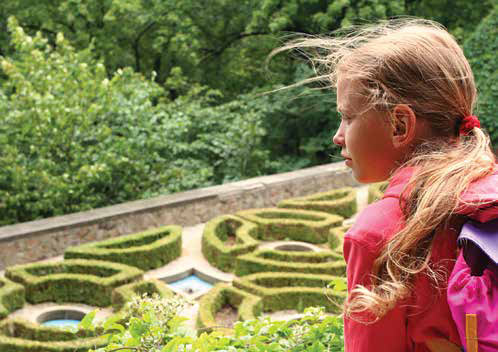Archaeology and Architecture, Conservation and Horticulture
Archaeology
It's probably best if you contact the Council for British Archaeology direct. Archaeologists are usually graduates, but there are plenty of contract opportunities for people with other qualifications, plus the increasingly technical side of archaeology - familiar to any fans of Time Team - requires specialist technicians. For a slightly irreverent - but realistic - look at careers in archaeology, you could try the website of Current Archaeology magazine.
Work Experience and voluntary work: Again, the Council for British Archaeology is the best source. Many of the opportunities it offers may be more suited to sixth form or university students, but if you're younger, you might find it useful to check out the Young Archaeologists' Club.
Architecture and the conservation of buildings or artefacts
It is unlikely that you will have taken a history degree and then decided to go into these fields; the usual route is to take specialist degrees (e.g. architecture, restoration - the City & Guilds one includes stonemasonry and carpentry). Or, if you don't want to follow the degree route, there are non-degree skills training opportunities for architectural technicians and building trades workers (stonemasons, carpenters, joiners, plasterers, bricklayers, metalworkers etc.) to which specialist training in conservation techniques can then be added. Some firms of architects specialise in conservation work - at the time of writing this booklet, one was advertising in The Guardian for qualified conservation architects and technicians to work on ‘world heritage sites, National Trust properties, churches, castles, historic houses' . The advert specified that ‘computer literacy is essential together with an academic interest in the historic background of conservation projects'. You might like to contact the Society for the Preservation of Ancient Buildings or the The Institute of Conservation to get an idea of the kinds of specialist training courses, activities and career opportunities available...
Work Experience and Voluntary work: Because conservation requires specialist skills, this limits the opportunities for work experience or volunteering. You might be interested in joining a local group of the Society for the Preservation of Ancient Buildings, which often arrange tours round interesting properties. You could also identify architects, furniture restorers and others with a particular interest in historic buildings or artefacts, and see if they could offer you some work experience - even if this is more or less as an office junior, you'll get a better idea of the kind of work that goes on.
Horticulture and Nature Conservation
We've already mentioned the National Trust's training scheme for people who will work in the gardens and grounds of their properties. If you like practical outdoor work, gardening can combine very nicely with an interest in history. There are job opportunities for people with horticultural qualifications and/or experience to work on the gardens of many historic properties, whether owned by heritage organisations, individuals, councils or of course some of the ancient schools and universities. Sometimes this involves restoring a historic garden or park to its former glory, following planting patterns laid down a century or more before. Nature conservation can also link very well with history, as so much of England's countryside has been shaped by the history of its agriculture. Certain traditional skills such as dry stone walling, coppicing and hedgelaying are still in demand, especially in the extensive acreages covered by National Trust properties and National Parks. The Forestry Commission are also restoring some traditional woodland management practices, and increasing their community and schools education activities. Many traditional skills can be learned as a volunteer with organisations such as BTCV, and though it wouldn't be easy to make a full time living using them, these skills plus a knowledge of and interest in history could help you find a job as, say, an Assistant Park Ranger or Ranger in a National Park.
Work Experience and Volunteering: Both the National Trust (see above, under Heritage Sites and Historic Houses) and TCV run working holidays for conservation volunteers, some of which will offer training in such skills as dry stone walling. Local conservation teams also go out for working days either during the week or at weekends - contact your local site or group.


